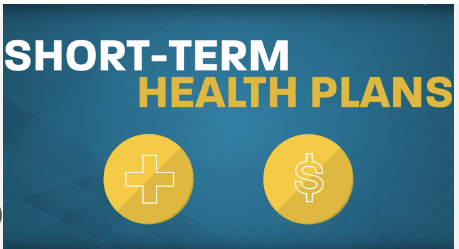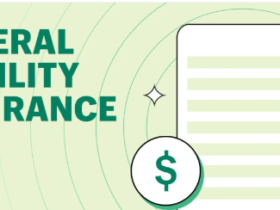Short-Term Health Insurance
Short-term health insurance, often referred to as temporary health insurance, is a type of health coverage designed to bridge gaps in traditional insurance. This form of insurance is ideal for individuals in between jobs, recent graduates, or those waiting for another policy to begin. While it doesn’t offer the same benefits as standard health insurance plans under the Affordable Care Act (ACA), short-term health insurance can be a practical and affordable solution for those with temporary or unexpected needs.
In this article, we’ll cover what short-term health insurance is, how it works, its benefits, limitations, and when it might be the right option for you.
What is Short-Term Health Insurance?
Short-term health insurance provides limited health coverage for a short duration, usually from a few months to a year, depending on state regulations and the insurer’s policies. Unlike ACA-compliant plans, short-term health insurance is not required to cover essential health benefits, such as preventive care, mental health services, and prescription drugs. However, it does typically offer coverage for unexpected medical expenses, such as doctor visits, emergency care, and hospital stays.
Because it is not ACA-compliant, short-term health insurance has fewer coverage requirements and can deny coverage based on pre-existing conditions. The flexibility and lower premiums make it an attractive option for individuals in temporary situations who need a stopgap solution.
How Does Short-Term Health Insurance Work?
Short-term health insurance policies work similarly to traditional health insurance but with different coverage options and limitations. Here are some key points on how short-term health insurance functions:
- Application and Approval
The application process for short-term health insurance is often quicker and simpler than that of ACA-compliant plans. Many applicants can receive approval within a day, and coverage can begin as soon as the next day. However, insurers may ask health-related questions and perform limited underwriting, as they can deny coverage based on pre-existing conditions. - Coverage Duration
Short-term health insurance policies are designed to last for a limited period, typically from one month up to 364 days, depending on state regulations. In some states, policies can be renewed up to three times, providing coverage for up to three years, but this varies by location and provider. - Limited Benefits
While short-term health insurance can provide essential protection in case of unexpected accidents or illnesses, it generally doesn’t cover preventive services, maternity care, mental health, or prescription medications. Each plan will specify the coverage it offers, so reading the details carefully is essential before purchasing. - Lower Premiums
Short-term plans are generally more affordable than ACA-compliant health insurance plans. The lower premiums are due to fewer coverage requirements, higher deductibles, and limited benefits, which can make short-term health insurance an attractive option for those needing budget-friendly, temporary coverage.
Who Might Benefit from Short-Term Health Insurance?
Short-term health insurance is not designed for everyone, but it can be ideal for individuals in certain situations. Here are a few cases where short-term health insurance might be the right choice:
- People Between Jobs
Short-term health insurance provides coverage for people who have left a job and are waiting for new employer-sponsored insurance to begin. It’s a good alternative for those who need immediate coverage but want to avoid the higher cost of COBRA insurance. - Recent Graduates
Recent college graduates who no longer have access to student health plans may find short-term health insurance beneficial as they transition to full-time employment. It offers a flexible and affordable solution during this time of change. - Early Retirees
Early retirees who aren’t yet eligible for Medicare may opt for short-term health insurance to cover the gap until they turn 65. - Waiting Periods for Other Coverage
Some individuals may experience a waiting period before other coverage begins, such as through an employer or the ACA marketplace. Short-term insurance can fill the gap, providing temporary protection. - Missed Open Enrollment
For individuals who missed the ACA open enrollment period and don’t qualify for a special enrollment period, short-term health insurance can be a viable, albeit limited, alternative until the next enrollment period.
Benefits of Short-Term Health Insurance
Short-term health insurance offers several key benefits, which make it attractive to individuals seeking temporary health coverage. Here are some primary advantages:
- Affordable Premiums
One of the main reasons people choose short-term health insurance is its affordability. Monthly premiums for short-term plans are typically lower than those of ACA-compliant plans, making it a cost-effective option for temporary needs. - Flexible Coverage Periods
Short-term health insurance allows policyholders to select the length of coverage they need, whether it’s for a month or several months. This flexibility is beneficial for individuals who are unsure of how long they’ll need coverage. - Quick Approval Process
Short-term health insurance policies often have quick application processes, with coverage beginning as soon as the next day in some cases. This is ideal for those who need immediate coverage due to unforeseen circumstances. - Access to a Wide Network of Providers
Many short-term health insurance plans have extensive provider networks, giving policyholders access to a broad range of doctors, specialists, and hospitals without the need for referrals.
Limitations of Short-Term Health Insurance
While short-term health insurance offers affordable and flexible options, it’s important to understand its limitations before purchasing a policy. Here are some potential downsides:
- No Coverage for Pre-Existing Conditions
Short-term health insurance is not required to cover pre-existing conditions, meaning that if you have a chronic health issue, any medical care related to that condition is likely to be excluded from coverage. This is a significant drawback for people with ongoing health needs. - Limited Benefits
Short-term health insurance doesn’t have to cover the ten essential health benefits mandated by the ACA, such as preventive care, mental health services, or maternity care. It’s crucial to read the policy details carefully to understand what is and isn’t covered. - Higher Out-of-Pocket Costs
Short-term health insurance policies often come with higher deductibles and coinsurance, which means policyholders may have substantial out-of-pocket expenses if they require medical care. - Policy Renewability Limits
While some states allow short-term health insurance policies to be renewed, others do not. This can leave policyholders without coverage if their needs extend beyond the initial policy period. - Lack of ACA Protections
Short-term health insurance policies do not have the consumer protections that come with ACA-compliant plans, such as caps on out-of-pocket costs. Without these protections, policyholders may face high medical expenses if they need extensive care.
How to Choose a Short-Term Health Insurance Plan
If you’re considering short-term health insurance, it’s essential to choose a policy that fits your needs and budget. Here are some tips for selecting the best plan:
- Evaluate Your Health Needs
Assess your current health status and determine what kind of coverage you need. If you’re in good health and need limited coverage, a short-term plan could be a suitable, cost-effective choice. - Understand the Coverage Limits
Review each plan’s details to understand what is and isn’t covered. Make sure you’re aware of exclusions and limitations, especially if you have any pre-existing conditions. - Compare Plans and Prices
Short-term health insurance plans vary widely in cost and coverage, so it’s essential to compare several options to find one that offers the best value. - Check for Network Providers
Ensure the plan includes your preferred doctors and hospitals in its network, or verify that it has a broad enough network to meet your needs. - Consider the Deductible and Out-of-Pocket Costs
Short-term plans often come with high deductibles, so consider your ability to pay out-of-pocket if you need medical care. - Assess State Regulations
Regulations regarding short-term health insurance vary by state, so be sure to check your state’s rules on plan duration and renewability.
When to Consider an ACA-Compliant Plan Instead
While short-term health insurance has its benefits, it’s not suitable for everyone. If you have pre-existing health conditions, anticipate needing regular healthcare services, or want comprehensive coverage, an ACA-compliant plan may be a better option. Here are some scenarios where an ACA plan might be preferable:
- Individuals with Chronic Health Conditions
Short-term health insurance doesn’t cover pre-existing conditions, making ACA-compliant plans a better option for those with ongoing health issues. - People Who Qualify for Subsidies
ACA plans often come with subsidies that reduce monthly premiums for low-income individuals and families. Short-term plans don’t offer these subsidies, so an ACA plan may be more affordable after subsidies are applied. - Families Needing Comprehensive Coverage
For families, short-term health insurance may not provide adequate coverage for all members. ACA plans offer a more robust option for families who need regular care and preventive services.
Conclusion: Is Short-Term Health Insurance Right for You?
Short-term health insurance is a flexible, affordable option for those who need temporary coverage. It can be a lifeline for people between jobs, recent graduates, or early retirees waiting for other coverage to begin. However, it’s essential to understand the limitations of short-term policies, including the lack of coverage for pre-existing conditions and limited benefits.
By carefully evaluating your health needs, comparing plan options, and understanding both the benefits and limitations of short-term health insurance, you can make an informed decision on whether this type of policy is right for your current situation. If you need affordable, temporary health insurance coverage, short-term health insurance may be the solution you’ve been looking for










Leave a Reply
View Comments